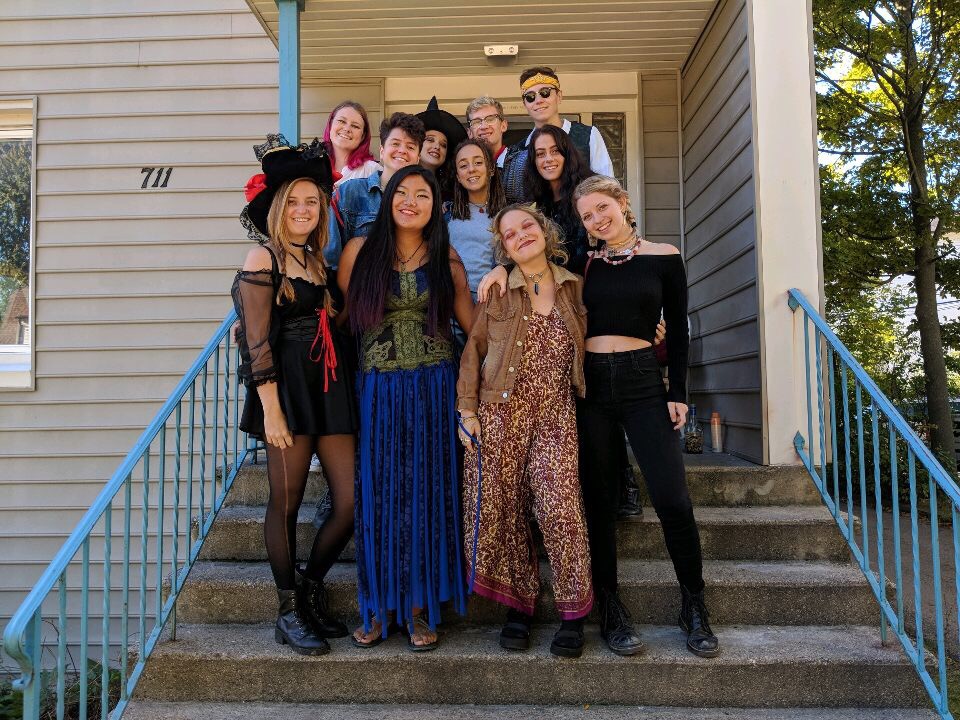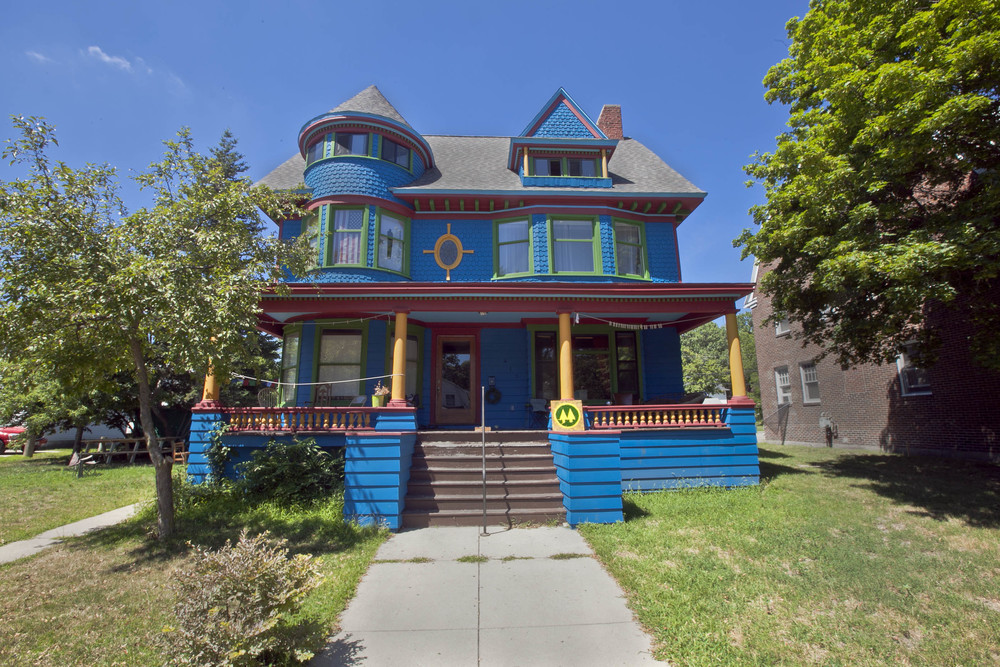Finding Home in a Co-op
February 13, 2020
By Chrystel Lopez '22
Some people adore dorm life. After all, you’re just a door knock away from a friend.
Others prefer settling into their own apartment and having a newfound sense of independence, while also having more space.
Then there’s the select few, who feel right at home in a mini-mansion of 20-something-year-olds. And maybe they’re onto something.
RCAH alum Charlotte Baykian '19 said she believes that, though all MSU students would benefit from living in the Student Housing Cooperative (SHC), RCAH students are particularly special. The artists, thinkers, activists, and collaborators found in RCAH are often the same kinds of people found in the co-op scene.

“Creative thinkers, empathetic souls, and eager adults are what makeup both RCAH and the co-ops,” Baykian exclaimed.
For two years, Baykian lived in the David Bowie Memorial Co-op. When she first toured the houses, she said she fell in love with the atmosphere of each house.
“When I visited the houses as a requirement for my application, I was blown away by how relaxed and easy-going everyone was,” said the RCAH and communications dual major. “They were funny and open-minded. It definitely was the people who enticed me the most.”
So what is this funny, open-minded, and enticing thing known as a “co-op”?
A co-op—short for “cooperative”—is a housing alternative in which the residents of the home own and maintain their share of the house. Yes, this means that members of the SHC become official homeowners. Sort of. Residents don’t technically own the property but own a share of the corporation that does own the property. That means no landlord knocking down the door for rent or attempting to make a profit by up-charging the monthly costs.
With 17 houses and more than 240 members, this is not just a housing alternative, this is a community. And what is perhaps most notable about co-op living is the fact that the community is in charge. The governing body of any given house is its residents. Depending on the house size, some residents will hold an “officer” position. These positions include finance, dealing with things like the grocery and utility budget; membership, who recruits and guides prospective members through the housing process; and education, who hosts workshops dealing with broader campus issues such as consent and educates residents about co-op life.
Each member also is given a house chore to complete during the week in order to keep the house tidy as well as keeping tensions low.
“Part of your role in the house is deliberately taking on the ‘messes’ or duties around the house,” Baykian said. “You may clean the second-floor bathroom or do all of the house grocery shopping, while another ‘co-oper’ may clean the living room or do the recycling. It's a mutual respect thing. Putting several minds together to value the space and culture where you live.”
With weekly or bi-monthly house meetings, Baykian explained that each member of a house is given a safe and respectful space to voice their concerns and raise ideas for how to run the house. In this way, co-op living can be a great way to learn how to live and communicate with other people.
RCAH senior Jacob Templin-Fulton '20—a member of New Community co-op—agrees.
“For me personally, the co-ops give me a strong sense of community,” Templin-Fulton said. “It’s intentional; the purpose is to learn how to live together.”
In a co-op, members have the option of living in a double or single. A double-averages about $300 to $400 a month, while a single is around $500 a month. The rent also includes utilities and house amenities such as furniture, cleaning products, dishware, and even certain house foods like bread, eggs, condiments, and baking goods.
A house constitution is a fluid, collaborative set of rules and ideals established by the owners of the houses. Constitutional amendments such as the importance of consent, safety, and respect. As a result, the SHC is an open and inclusive environment.
Baykian believes that both RCAH and the co-ops are similar in a lot of ways.
“Part of the job of an RCAHer is to constantly strive towards critically analyzing the perspectives of others, from all angles,” Baykian said. “This is exactly what is required of co-opers on the hunt for household harmony and the building of strong relationships.”

One need only walk past a few co-ops to see that they strive for all forms of self-expression. Some have interesting names, like Bowie and Miles Davis. Some are painted with interesting colors. Others have unique cultures. After consulting with your housemates, you can paint your room or common spaces with murals. Depending on the size of the house, residents have hosted bands and art shows to support local artists.
After all, building a supportive and collaborative community is the basis of what co-ops do. Contrary to popular belief, co-ops are not just hippie housing. They are for anyone who wants the experience of living with vibrant, creative, and passionate people who are looking to make a difference.
In this way, as Baykian said, co-ops seem perfect for RCAH kids.

